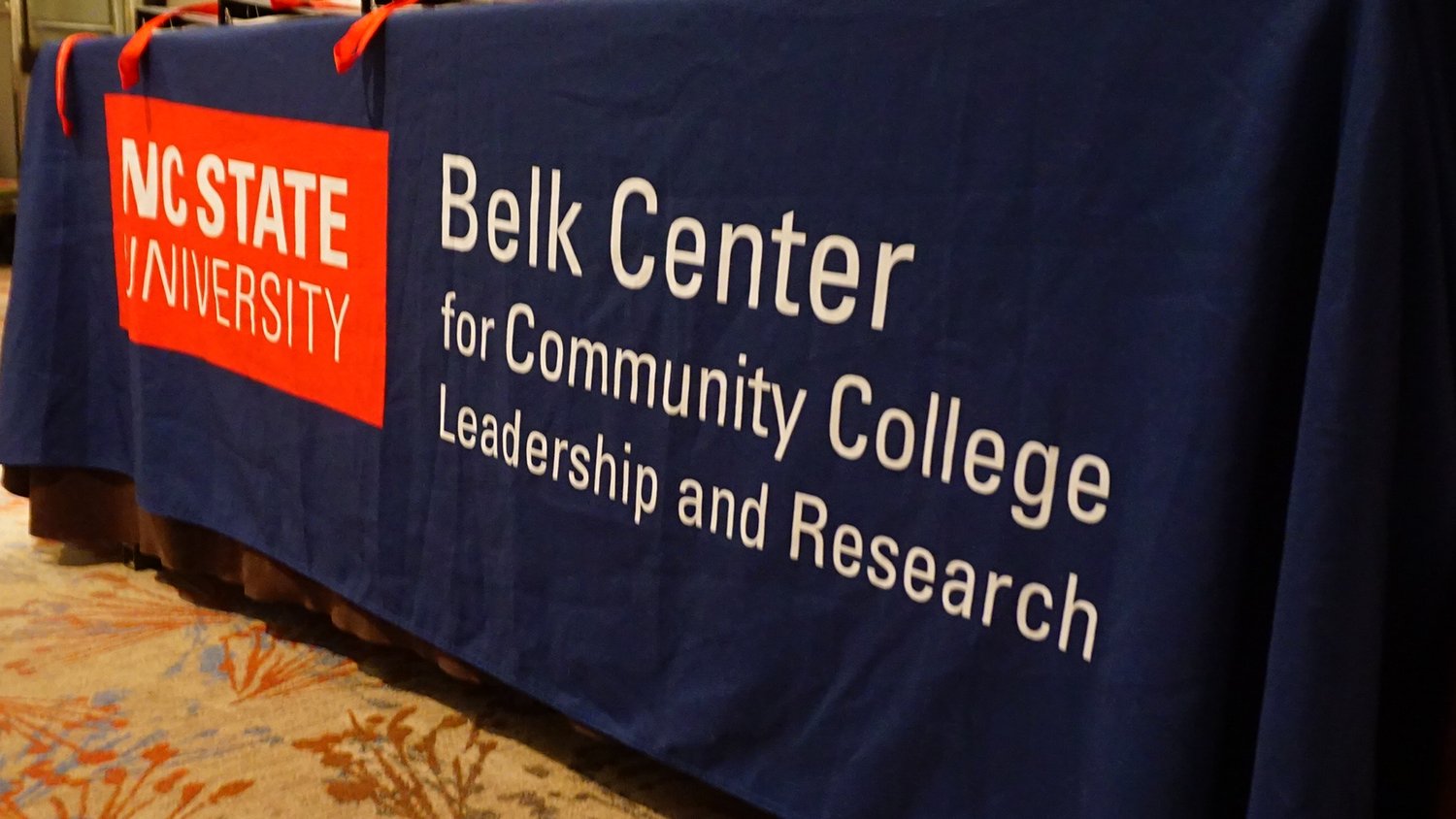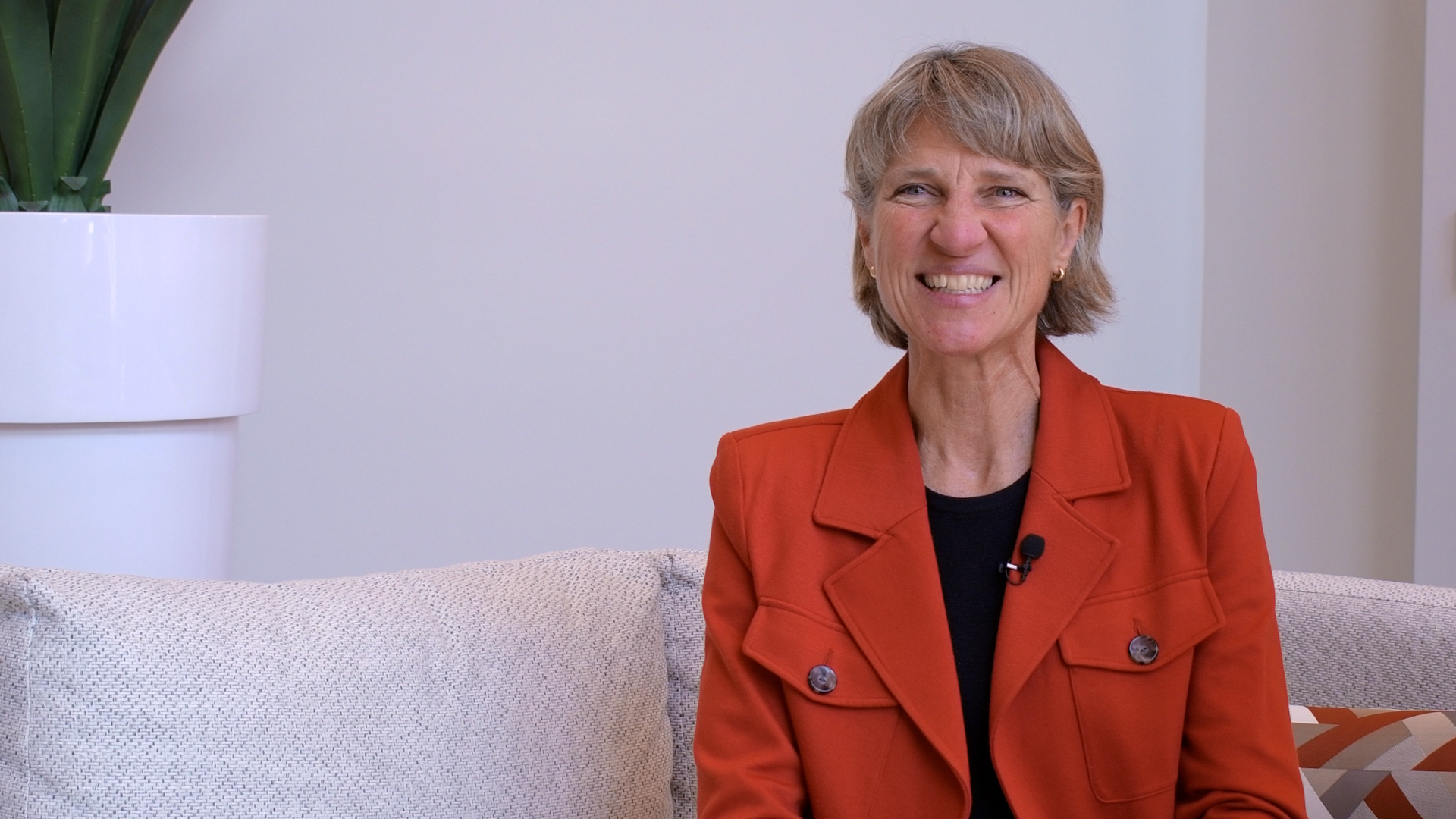Ahead of 2020 Dallas Herring Lecture, Belk Center Reflects on Work Surrounding COVID-19 Support and Equity Initiatives

As the country continues to grapple with the effects of the coronavirus, the ongoing pandemic could serve as a moment of truth for community colleges in regions of poverty and communities of color, where the institutions represent the best hope for social and economic mobility.
The possibilities for change will be explored by Pam Eddinger, president of Bunker Hill Community College in Massachusetts, on Nov. 10, 2020, during the virtual Dallas Herring Lecture entitled Insights from the Pandemic: The Reckoning and the Hope at Our Nation’s Community Colleges.
Hosted by the NC State College of Education’s Belk Center for Community College Leadership and Research, the annual lecture invites national community college leaders to speak on urgent and emerging topics and discuss solutions that are both practice-based and rooted in research.
“Over the past year we have worked with community college presidents to identify specific underserved populations for which they want to target service, But the pandemic hit and just as presidents’ needs change, what we provide to presidents also changed,” said Audrey J. Jaeger, Ph.D., executive director of the Belk Center and Alumni Distinguished Graduate Professor in the College of Education. “We completely shifted to providing faculty support to move their courses online and giving presidents information on more timely topics. Our goal at the Belk Center is that as the needs of the presidents change, so too will the services we provide.”
Days after community colleges shifted to online learning in March, the Belk Center began providing support for presidents, faculty and staff who quickly needed to reformat courses. Led by Assistant Teaching Professors Michelle Bartlett, Ph.D., and Carrol Warren, Ed.D., the Belk Center launched and delivered support through live Zoom sessions, webinars and instructional videos that were accessed by more than 500 individuals.
In addition, six Critical Conversation webinars were created for the Presidents’ Academy addressing leadership issues that ranged from technology and strategic thinking to enrollment and budget finance. The webinars built on the action plans community college leaders created to increase service to historically underserved students during a Presidents’ Academy symposium in March.
“Presidents have changed their action plans to meet the new needs that COVID-19 has brought about and the Belk Center continues to support them by connecting them to additional resources,” said Kim Sepich, Ed.D., director for executive leadership programs at the Belk Center.
As they support presidents through the continued impacts of the pandemic, the Belk Center has also reevaluated how they prepare future community college presidents through the College of Education’s Community College Leadership doctoral program.
James Bartlett, Ph.D., associate professor and director of the Charlotte adult and community college doctoral cohort, said the program this year adopted a framework developed by the Aspen Institute that seeks to develop community college presidents who lead with the intent to improve student success in learning, completion, transfer and labor market outcomes while intentionally addressing equity issues.
To create greater equity within the program itself, the program has removed the admissions testing requirement — which data showed was producing inequitable results– and replaced it with an intensive interview weekend that takes a more holistic approach to getting to know students.
“Our goal was to model an equitable admissions process that reduces barriers for these future leaders, Bartlett said.
As calls for an end to systemic racism and racial injustice have amplified worldwide, the Belk Center as a whole has taken a closer look at ways in which they can contribute to ensuring equity and dismantling barriers for students in their own programs and at community colleges.
They recently provided support for an event that elevated the voices of three Black community college presidents, developing a report that summarized information from participants and gathered input from key stakeholders and decision makers to create recommendations for the partners and advocates who support North Carolina community colleges.
“As a center, our renewed commitment to prioritizing equity is a driving force for the work we do, not just today, but as in intrinsic value we live out and seek continuous improvement for years to come,” said Jemilia Davis, Ph.D., director of strategic initiatives and external relations at the Belk Center.
Building on Past Dallas Herring Lectures
In addition to providing support surrounding the ongoing pandemic and calls for racial equity, the Belk Center has also been engaged in several projects that are a direct result of past Dallas Herring Lectures.
The 2019 Dallas Herring Lecture, delivered by Valencia College President Sanford “Sandy” Shugart, focused on “Ecosystem Thinking in Higher Education: The Future of Transfer” and argued that the system of transferring credits from community colleges to four-year universities must be redesigned.
Following that lecture, Belk Center faculty took an in-depth look at the variety of pathways, policies and student experiences that impact transfer for North Carolina students. As a result, they were able to provide individualized data to community college leaders that showed success rates for students who transferred to University of North Carolina System institutions and disaggregate the data to look at how transfer patterns differ among historically underserved groups.
“We’ve actually been able to bring together this cross sector group of leaders from the community college system, the UNC System as well as myfutureNC to begin investigating what are the policy changes that need to happen to really bring students to the forefront to be successful in transfer,” said Andrea DeSantis, assistant director of research at the Belk Center.
The Belk Center has also been engaged in work surrounding teaching and learning initiatives as a result of the 2018 Dallas Herring Lecture, “The Urgent Case: Centering Teaching and Learning in the Next Generation of Community College Redesign,” delivered by Achieving the Dream President Karen Stout.
In response to that lecture, Belk Center faculty, postdoctoral scholars and graduate students worked with partners at Achieving the Dream to conduct six case studies of teaching and learning at community colleges across North Carolina. The goal of the studies was to understand how community colleges support teaching and learning on campus and what professional development opportunities are available for faculty.
The case studies demonstrated that community colleges have opportunities to create teaching and learning communities across their campuses to support faculty who are working in classrooms. In addition, the work helped identify key opportunities to support part-time and adjunct faculty who have a significant role in educating community college students.
Going forward, DeSantis said that the Belk Center plans to engage community college presidents through a series of workshops centered around teaching and learning work in order to help them incorporate the work into their institutions’ strategic plans.
- Categories:


